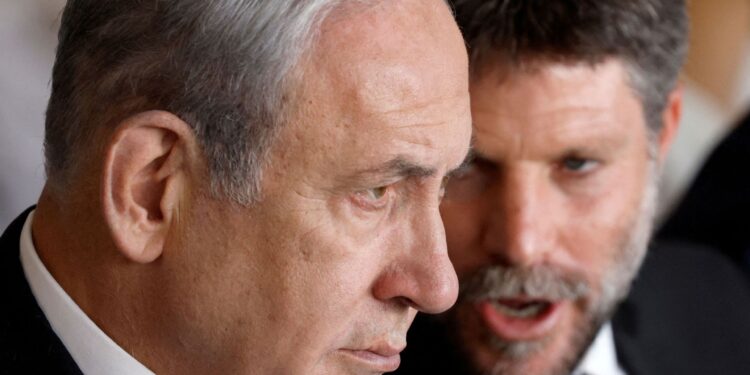Israel’s fiscal deficit widened in June to 7.6% of gross domestic product over the past 12 months, or NIS 146 billion ($39.77 billion), up from 7.2% in May, Finance Ministry Accountant General Yali Rotenberg said, according to the Israeli newspaper Globes.
According to the newspaper, the deficit is 1% higher than the target of 6.6% set by the government for the end of the current year.
During the past month alone, the fiscal deficit reached 14.6 billion shekels ($4 billion), compared to 6.4 billion shekels ($1.74 billion) in June 2023.
Since the beginning of 2024, the fiscal deficit has reached NIS 62.3 billion ($17 billion), compared to a surplus of NIS 6.6 billion ($1.8 billion) in the first six months of 2023.
Government spending
Government spending since the beginning of the year has risen above NIS 300 billion ($81.72 billion), an increase of 34.2% compared to the same period last year.
The main increase in the deficit is due to increased spending on defense and civilian ministries as a result of the war. However, even excluding war expenses, the increase in government spending is about 9.3%, compared to a rise of only 3.3% in state revenues, which since the beginning of the year amounted to about NIS 238 billion ($64.83 billion), compared to NIS 230.4 billion ($62.76 billion) in the first half of 2023.
The Ministry of Finance expects the deficit to peak by next September before declining.
Growth forecast
This came in conjunction with the Bank of Israel (the central bank) lowering its growth forecast for the economy with a “high level” of geopolitical uncertainty, amid expectations of a prolonged and more severe war with the Palestinian resistance, and an increased risk of escalation with Hezbollah on the northern border.
The Governor of the Bank of Israel, Amir Yaron, said in a press conference held yesterday in occupied Jerusalem that the bank “assumes that the war will continue with higher intensity until the end of 2024, and will end at the beginning of 2025, later than previous expectations” in April.
The bank expected the economy to grow by 1.5% in 2024, down from a previous forecast in April of 2%, and lowered its growth forecast for next year to 4.2% from 5%.
The Bank of Israel kept interest rates at 4.5% for its fourth consecutive meeting yesterday, in line with most economists’ expectations.
In January, the bank cut its key lending rate for the first time in nearly four years by 25 basis points from 4.75%, to support households and businesses as the economy was hit by the war on Gaza and inflation eased.
“The economy is facing great uncertainty,” Yaron said. “Economic growth slowed in the second quarter, and supply constraints are keeping economic activity from moving closer to the pre-war trend.”
At the same time, Yaron stressed that the risk premium Israel bears is at a “high level and has continued to rise recently.”
risk premium
“The high risk premium over a long period of time has a negative impact on real economic activity,” he added. The war in Gaza has been ongoing for nine months now, with the possibility of its scope expanding to include Hezbollah.
Yaron noted that since the last interest rate decision, the shekel has weakened by about 1.3% against the dollar, with high volatility in light of various developments in the geopolitical environment.
The escalation of the ongoing war to the northern front with Hezbollah in Lebanon is worrying the Central Bank, as this escalation could cause additional defense and civilian expenditures, leading to an increase in the financial deficit and a weakening of the shekel.
The Bank of Israel governor urged policymakers to exercise fiscal responsibility to prevent the deficit from spiraling out of control during the current difficult and uncertain war period.
“If decisions are made that include additional permanent increases in the defense budget, further adjustments will have to be made accordingly,” Yaron said. “The government’s responsibility is to take the necessary steps, even if some of them are unpopular, to ensure economic stability and promote sustainable growth.”
The cautionary comments come as the finance ministry drafts a 2025 budget plan, which the central bank hopes will help create some certainty for investors about spending cuts and tax increases on the revenue side, to finance the costs of the war.



